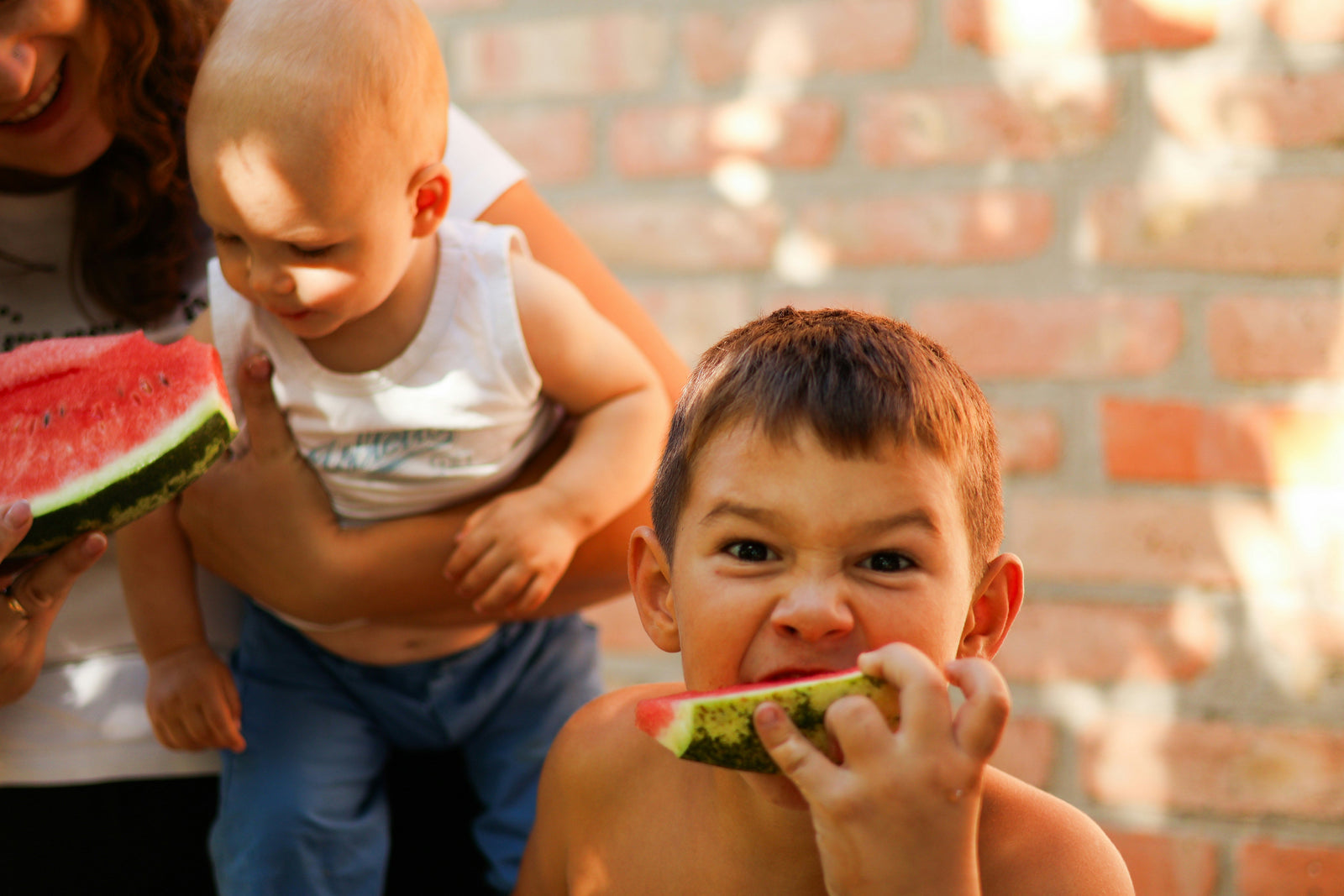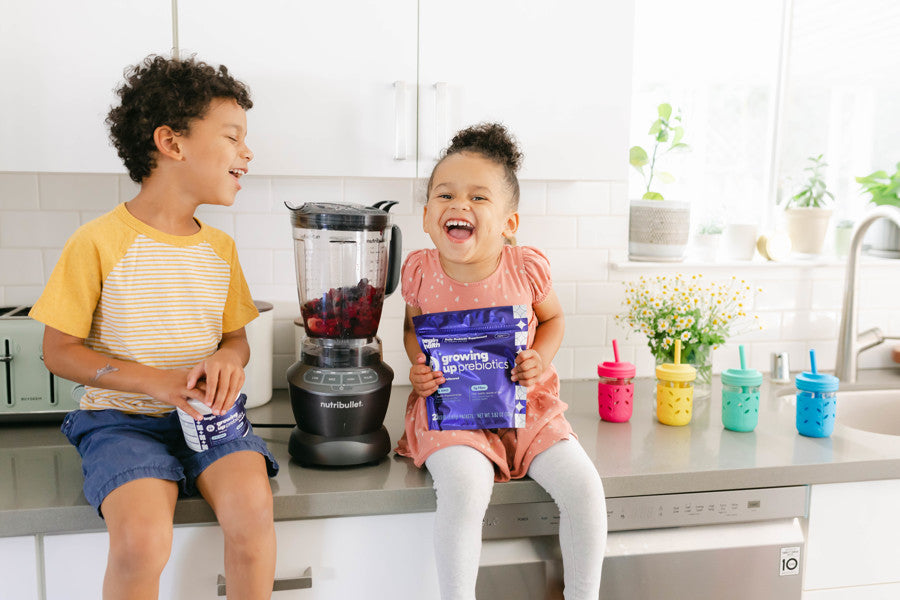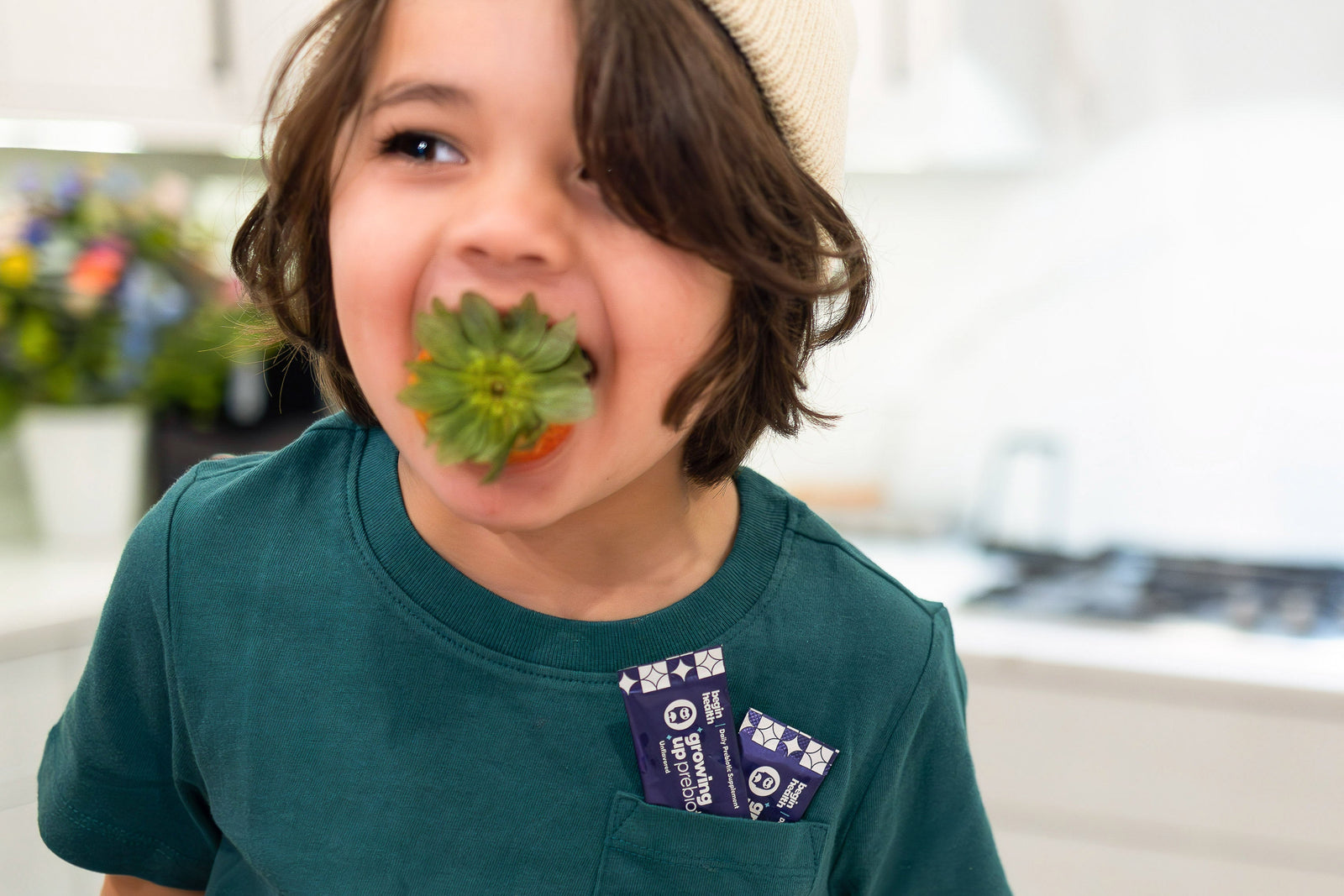Your Cart is Empty
Continue shoppingAvoiding Foods That Can Cause Constipation In Kids
Medically reviewed by Krystyn Parks, MS RD | Published October 10, 2022
share this article

Nothing is worse than seeing your child uncomfortable. Many parents complain that their child is straining when they use the toilet or that their child’s stomach hurts due to constipation. Is this preventable? Is there something that parents can do? Yes there is! Let’s take a look at the foods that cause constipation in kids.
Daily reads to help your little ones lead happier and healthier lives.
Buy Now
Join the
Happy Gut Club
First, the Big Picture
There are a few factors I look at when a kid is constipated. Generally speaking, we recommend fiber, fluids, and movement to help with constipation. So if any of these are lacking, it’s easy for a child to get backed up. To start, make sure that your child is getting adequate movement and that they are drinking plenty of water throughout the day.
Foods that Cause Constipation in Kids
Next, let’s look at food. With any of the foods on this ‘top foods that cause constipation in kids’ list, the concern is that they are taking the place of higher fiber alternatives. A diet high in fruits, vegetables, and whole grains will lead to optimal gut health and should help prevent constipation.
But, I’m a mom and I get it. We eat lots of everything. I try to limit the foods on this list, but we eat them too.
Refined Grains
Did you know that foods like white bread, white rice, etc have the fiber removed?! In some cases, the fiber will be added back in, but it often isn’t the same naturally occurring fiber.
Gradually try to reduce the amount of refined grains in your child’s diet and increase the amount of whole grains. At the store look at labels. All of these options will be higher in fiber and can help with constipation. Here’s what to watch for:
-
Look for 100% whole wheat bread or brown rice. On food labels look for ‘whole grains’, ‘multigrain’ isn’t as good.
-
In the pasta aisle, look for whole wheat pasta or pasta made from beans such as black bean or chickpea pasta.
-
If you’re eating a lot of white rice, try alternative grains such as quinoa, farro, bulgar, and barley.
Dairy
For many kids, eating too much dairy can lead to constipation. It is unclear if it is due to some level of intolerance to the milk protein or if the excess dairy is taking the place of high fiber foods. For younger kids, limit milk to 16 ounces a day. Older kids can have up to 24 ounces. You can opt for yogurt as it contains some probiotics which can help with gut health.
Fatty Meats
Next, let’s look at fatty meats as they can cause constipation. Like dairy, these may take the place of higher fiber food options. All meats will have no fiber. If they are higher in fat, they will be slower to digest and may fill your child up for longer, making them less likely to eat higher fiber foods as snacks later. While you don’t need to completely exclude meat from the diet, you can replace some meals with plant based protein options like beans, lentils, and tofu which will also provide some fiber which can aid with constipation.
Chips and Other Greasy Snacks
This is a big category of foods that cause constipation in kids. These foods tend to be high in fat which is associated with constipation. They also tend to have lower fiber levels. The concern is, if chips and greasy snacks are offered as a snack they could be taking the place of a higher fiber alternative.
These foods are fine in moderation, but if you notice that your child is becoming constipated, you may want to switch to a higher fiber snack as an alternative.
Cookies and Candy
Next, cookies and candy are foods that cause constipation in kids. A diet high in simple sugars is associated with a change in the gut microbiota that could lead to constipation. These foods would also be taking the place of higher fiber options. These foods are ok in moderation, as all foods fit in a healthy diet, but if consumed in excess could contribute to constipation.
Palm Oil
Palm oil is used in infant formula to create a similar fatty acid profile to breast milk. Studies have shown that infant formulas that contain palm oil are associated with less frequent and firmer stools than formulas without palm oil. Palm oil is also used in foods such as bread, pastries, cereal, peanut butter, chocolate, and margarine. It is also used to make foods stretchy such as in gummies.
Do Bananas Cause Constipation?
Most parents have heard that bananas lead to constipation, but is it true? Bananas are interesting because their fiber content changes drastically as they ripen. Green bananas are high in resistant starches and tannins which can make constipation worse. As they ripen, the resistant starch content decreases and turns into sugar. A very ripe banana usually will not worsen constipation. If you feel that bananas do constipate your child, there is no need to continue serving them as there are many other sources of fiber.
What About Iron?
Like bananas, iron has a reputation for causing constipation. High doses of iron, like those in iron supplements, are associated with constipation, however iron intake through diet isn’t. Many parents notice a difference in stooling when transitioning from breast milk to formula and think that it’s the iron causing the difference, but there are many factors at play. They may also notice a difference when introducing solids, where an emphasis is put on iron-containing foods, but generally the difference in stooling has more to do with the advancement in texture and complexity of the foods than the iron itself. Opt for foods with naturally occurring iron such as beans and lentils versus foods with iron added in such as infant cereals if constipation is an issue.
Summary
Choose high fiber alternatives to the foods on this list when you can. It is important to include plenty of fluids in your child’s diet as fiber can be constipating if consumed without water.

Author
Krystyn Parks, MS RD
Trending

How to Transition Kids Off Stool Softeners Safely
read now
How to Know If Your Kid Needs a Stool Softener (or Something Else)
read now
Why Parents Are Choosing Prebiotics Over Stool Softeners for Kids
read now






